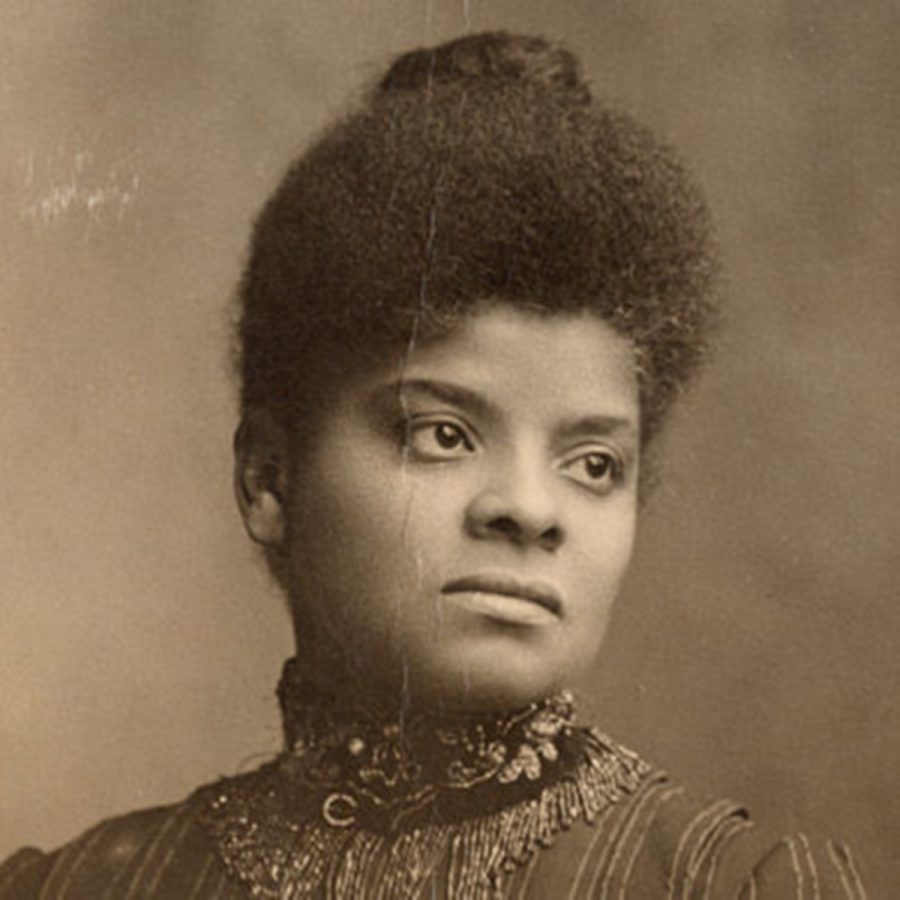Celebrating Black History Month- Ida B. Wells
Portrait of Ida B. Wells
February 15, 2022
As many of you know, February is Black History Month. It is a month dedicated to remembering and celebrating the lives of black Americans who have used their lives and legacies to benefit the black community in this country.
That being said, I wanted to write about someone who’s story I haven’t heard much yet, and who has a very interesting one. Somebody who’s legacy isn’t one I’ve seen talked about a lot, and someone who I wanted to spread awareness for this month. Her name was Ida B. Wells, and she was a black journalist, researcher, and activist, all rolled into one.
She used her journalistic talents to raise awareness for the condition of African-American people in the South in the late 19th/ early 20th century. Her writing shed light on the racism, sexism, and blatant violence she faced throughout her life.
Wells was born into slavery, and once the Civil War had ended, her parents became very involved in the politics of the Reconstruction era. This taught Wells activism and involvement at a young age. She learned the importance of both education and social politics.
For a time, she attended Rust College and became an educator. When a yellow fever epidemic hit her hometown in Mississippi, and her parents and baby brother died, Wells took up the task of raising and teaching her other siblings. She moved her family to Memphis, Tennessee and continued her career as an educator there.
In Memphis, Wells experienced many injustices because of her race, including being thrown off a train car despite having a ticket and the lynching of her friends. Because of such instances, she turned her writings’ attention to racism, namely mob violence begun by white people against black people. She wrote and investigated many lynching cases, and wrote columns in many local newspapers. She even became the co-owner and editor of one. One of her exposés made so many people angry, that the threats that followed it forced Wells and her family to relocate to Chicago.
In Chicago she did some activist work, working with other black leaders to boycott the World’s Colombian Exposition for locking out black people and falsely portraying the black community. It was also here that Wells married lawyer Ferdinand Barnett, and from then on balanced her career as a writer and activist with motherhood as well.
Ida Wells also did work with the women’s suffrage movement, telling white women that they ought to pay more attention to lynching. Wells also travelled abroad to show non American audiences the atrocities of lynching and racism.
Because of her outspoken nature, Wells was often separated by the suffrage movement. However, that did not stop her from trying to advance the position of black women with her work. She went on to found the National Association of Colored Women’s Club in order to try and reconcile the civil rights movement and that of suffrage.
The thing that angers me the most about Wells’ story is this: she was present for the famous Niagara Falls meeting that founded the NAACP, and helped to found it, but because of all the stigma that surrounded her, is not mentioned as an official founder of the organization. That fact broke my heart, and is one of the reasons I wanted to write about Ida Wells and her legacy.
Overall, Wells was a pioneer for black writers, especially black women writers, everywhere. She did good work throughout her life and sought to raise awareness for the various and horrible acts of violence committed against black people in America, especially in the South, through her writing as an investigative journalist and activism. Sadly, I hadn’t heard of her story until very recently, and so I thought it was nothing but appropriate for us all to celebrate her this Black History Month.
For more information about Ida Wells, her life, and her legacy, read this article, or watch this informational YouTube video by TED.















